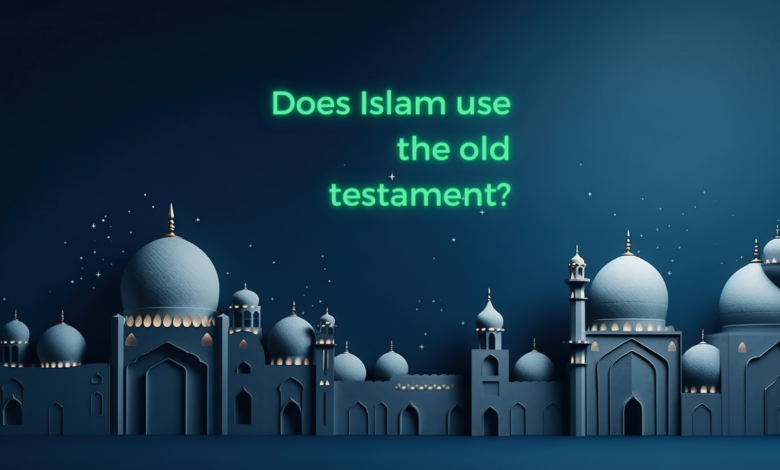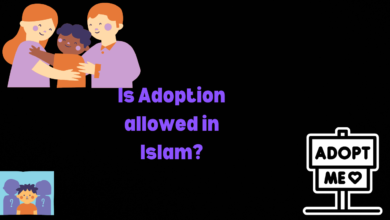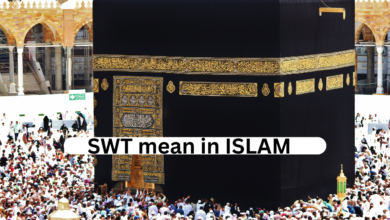Does Islam use the old testament?
"The Surprising Similarities: Islam and the Old Testament"

Does Islam use the old testament?
Yes, Islam does recognize the Old Testament as one of the previous scriptures revealed by God to different prophets. It is considered a sacred text, although Muslims believe that it may have undergone changes and alterations over time.

Introduction
Islam, Christianity, and Judaism share common historical and religious roots, often referred to as the Abrahamic faiths. One of the most notable similarities among these religions is the presence of sacred scriptures that guide their beliefs and practices. While Islam has its own holy book, the Quran, and the Hadith (sayings and actions of the Prophet Muhammad), there is some connection between Islam and the Old Testament, which is part of the Jewish and Christian scriptures. In this article, we will explore the relationship between Islam and the Old Testament, how they intersect, and their differences.
Common Prophets and Stories
One of the key ways in which Islam and the Old Testament intersect is through the shared prophets and stories. Islam acknowledges many of the same prophets mentioned in the Old Testament, such as Adam, Noah, Abraham, Moses, and David, among others. These figures are considered important messengers of God in Islam, and their stories are recounted in the Quran. Muslims revere these prophets and follow their teachings, which are often similar to the narratives found in the Old Testament.
The Concept of Monotheism
Both the Old Testament and the Quran emphasize the concept of monotheism, the belief in one God. This shared theological foundation underscores the Abrahamic faiths’ common commitment to worshiping the same deity. In fact, the Old Testament’s first commandment, “You shall have no other gods before me,” aligns closely with the Islamic belief in the absolute oneness of God (Tawhid).
Ethical and Moral Guidelines
The Old Testament contains ethical and moral guidelines that parallel some of the principles found in the Quran. Both texts advocate for justice, compassion, honesty, and the care of the less fortunate. For instance, the Ten Commandments in the Old Testament, which include commands like “You shall not murder” and “You shall not steal,” align with Islamic teachings on moral conduct.
Differences and Interpretations
While there are commonalities between Islam and the Old Testament, it is essential to recognize the differences and interpretations that exist. The Quran is considered by Muslims to be the final and most authoritative revelation from God, superseding previous scriptures, including the Old Testament. While the core teachings may align, there are variations in narratives, laws, and practices between the two texts.
Moreover, the Quranic perspective on certain figures and events may differ from the Old Testament. For example, the Quran presents a distinct perspective on the story of Adam and Eve’s creation and fall, which differs from the biblical account in Genesis.

Historical and Cultural Context
The Old Testament and the Quran were revealed in different historical and cultural contexts. The Old Testament is primarily associated with the history and religious development of the Jewish people, while the Quran emerged in 7th-century Arabia. These distinct contexts influenced the texts’ content and focus.
Also check
- Is Islam the truth?
- Family Values in Islam
- Surah Fajr: Exploring its Profound Connection to Prophet Muhammad (peace be upon him)
- Can we go to heaven with tattoos in Islam?
- Is life insurance Halal in Islam?
Conclusion
In conclusion, Islam does indeed have a connection to the Old Testament through shared prophets, stories, monotheistic beliefs, and moral principles. These commonalities reflect the Abrahamic heritage that underlies these religions. However, it is essential to recognize that while there are similarities, there are also differences and unique interpretations between Islam and the Old Testament due to their distinct historical and cultural contexts. Understanding these connections and distinctions can foster interfaith dialogue and a greater appreciation of the diverse religious traditions that enrich our world.

Where are the 25 Prophets of Islam in order?
Does Islam acknowledge the Old Testament as a holy scripture?
Yes, Islam does recognize the Old Testament as one of the previous scriptures revealed by God to different prophets. It is considered a sacred text, although Muslims believe that it may have undergone changes and alterations over time.
Is the Old Testament a part of the Islamic holy scriptures?
No, the Old Testament is not part of the Islamic holy scriptures. Muslims believe in the Quran as their primary holy book, followed by the Hadith (sayings and actions of the Prophet Muhammad).
Are there any similarities between the Old Testament and the Quran?
Yes, there are several similarities between the Old Testament and the Quran. Both contain stories of many prophets, such as Adam, Noah, Abraham, Moses, and others. They also share some moral and ethical teachings
Do Muslims follow the laws and commandments given in the Old Testament?
While there may be some similarities in moral and ethical teachings, Muslims are primarily instructed to follow the laws and commandments outlined in the Quran and the Hadith. The Old Testament’s laws and commandments are not binding on Muslims.
Do Muslims believe that the Old Testament is unchanged?
No, Muslims generally believe that the Old Testament, like the New Testament, may have undergone alterations and changes over time. The Quran is considered by Muslims to be the final and unaltered revelation from God.
Do Islamic scholars study the Old Testament?
Some Islamic scholars do study the Old Testament for academic and comparative religious purposes. This can help in understanding the historical context and the similarities and differences between the Abrahamic faiths.
Are there any specific references to the Old Testament in the Quran?
Yes, the Quran does make references to events and figures from the Old Testament, such as the stories of Adam and Eve, Noah’s Ark, Abraham, and Moses. These references are often used to emphasize the continuity of prophethood throughout history.
Are there any specific guidelines in Islam for interacting with the Old Testament?
Islam encourages respect for all divine scriptures, including the Old Testament. Muslims are generally taught to approach other religious texts with respect and tolerance, recognizing them as part of the broader Abrahamic tradition.
Do Muslims incorporate Old Testament stories into their religious practices or rituals?
While Muslims may be aware of Old Testament stories, they do not incorporate them into their religious practices or rituals. Islamic religious practices are primarily based on the Quran and the Hadith.
Can a Muslim read the Old Testament for personal study or knowledge?
Yes, Muslims are allowed to read the Old Testament for personal study or knowledge, as long as it does not contradict their fundamental beliefs and practices as outlined in the Quran and Hadith. It can be a source of historical and comparative religious understanding.






